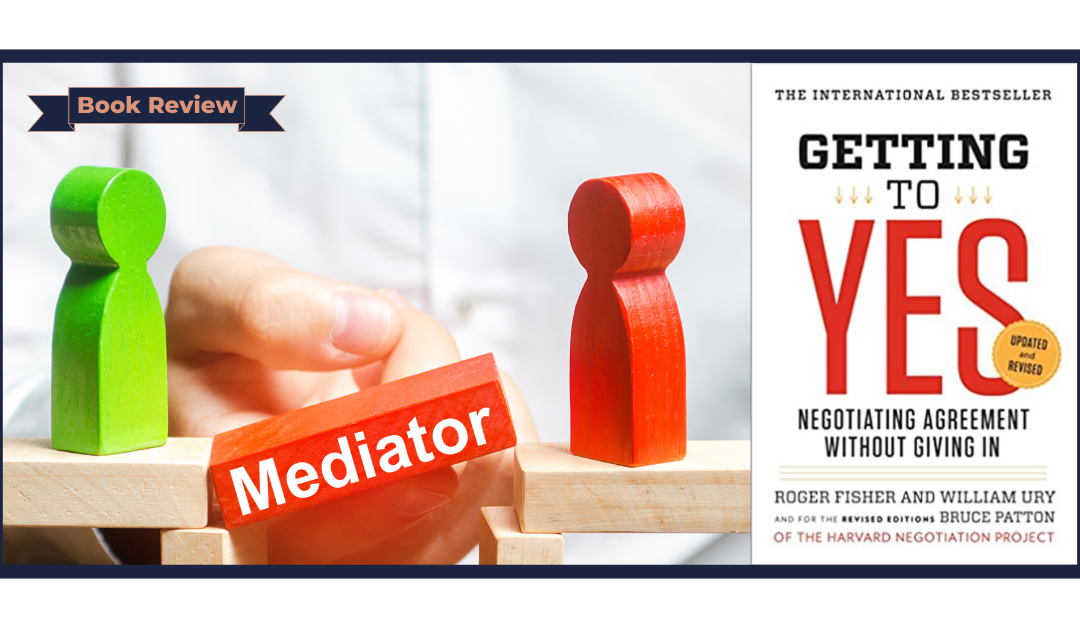Review by Katherine Miller
Getting to Yes: Negotiating Agreement Without Giving In, by Roger Fisher and William Ury, was first published in 1981 and is a classic for anyone in a negotiation, whether in the personal, professional, or legal arena. Now over 40 years old, this revised edition features additional insight from Bruce Patton for contemporary readers.
Required reading for business and legal negotiators for generations, Getting to Yes provides practical examples and logical steps for negotiating terms between parties utilizing “interest-based negotiation,” among other principles. Through a “principled negotiation” framework, two or more parties work together to address mutual interests with creative, objectively fair solutions that move from the standard adversarial negotiation approach with explanations about why an interest-based approach leads to more desirable outcomes. Lessons are easily understood and built on existing negotiation skills through step-by-step guidance on finding a mutually beneficial solution that helps both parties while preserving relationships for future negotiations.
The text centers around four pillars of “principled negotiations” to help parties in conflict to approach issues based on interests rather than purely contesting a single point by separating people from the problem, focusing on interests, not positions, inventing options for mutual gain, and insisting on using objective criteria.
Clear guidance on moving from an arbitrary positional system to one directed by interests and defined criteria make Getting to Yes required reading for anyone looking to move parties forward through conflict resolution and mediation by shifting the focus from positions to interests.
~~~
Join Katherine Miller and Ivan Alter on October 20th, 2022, to learn how an interest-based approach can help parties set aside their positions and focus on interests continuously throughout the mediation process while overcoming the tendency to revert to positional thinking out of fear, outside influence, anger, or distrust.
Interested in other books on conflict resolution and mediation?
Check out our resources page: https://understandinginconflict.org/resources/books/

